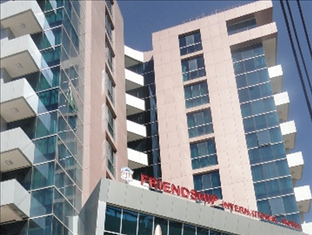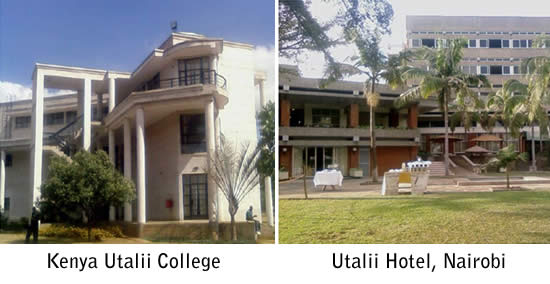Hotels Quest for Qualified Managers in a Growing Field
 Addis Ababa, Ethiopia - Friendship International Hotel, built by Friendship Investment Group in Bole District, joined the hospitality industry last year. It is located on a 1,000 sqm plot and has 150 employees.
Addis Ababa, Ethiopia - Friendship International Hotel, built by Friendship Investment Group in Bole District, joined the hospitality industry last year. It is located on a 1,000 sqm plot and has 150 employees.
Getabicha Dejene, the general manager, is currently looking for a food and beverage manager. Not one of the seven people who applied for the position met Getabicha’s expectations. A recommendation led him to a promising candidate, but it was to no avail; the latter was no longer interested in the hotel industry.
A typical hotel needs at least six departments. These are – food and beverage, front office, executive housekeeping, marketing, human resources and finance. All require a dedicated manager, and three out of the six departments, food and beverage, executive housekeeping and front office, need a manager trained in hotel management.
In some hotels, hiring managers for these posts is made at a higher level, as in the case of Capital Hotel & Spa. Here the hiring process for the executive management of the hotel was kept confidential, Anteneh Gulelat, human resource and training director, told Fortune.
Experience plus qualification
Many in the industry have devised a strategy to win the race in getting experienced hotel managers, like Capital Hotel & Spa, located on Haile Gebresilassie Avenue. Anteneh says finding a readymade manager is near impossible. The nature of the job demands more experience than just a qualification, contrary to what some hotels expect. According to him, new graduates need more training to meet the hotel’s standards. The staff turnover in the hospitality industry as a whole is very high, as many people see it as a job not a career, he claims.
Since the industry suffers from a lack of experienced hotel managers, when a manager leaves one hotel, many others welcome him gratefully.
Some even follow a headhunting method, a worker at a hotel who requests anonymity told Fortune. Some hotel managers use this strategy as they are not willing to spend their resources on new graduates and finding an experienced hotel manager is tough, he says.
Many owners enter the hotel business with loans. This, coupled with the fierce competition in the industry, means they get easily frustrated with the performance of their managers, pushing managers to other jobs, he added.
In fact, research by the Ministry of Culture & Tourism (MoCT) supported the above statement. Among the 46,000 workers in the hotel industry in Addis Abeba, only 6.4pc have training in hotel and tourism management. Even though there is a shortage of skilled workers, the study indicated that the low percentage of trained workers is not just due to the shortage, but also because of hotel owners’ reluctance to hire the concerned professionals.
Desebele Mengisha, a teacher and teacher’s representative at the Catering Training & Tourism Centre, who has also worked in different hotel managerial positions, shares the view of Anteneh.
“Hotel owners expect new graduates to be perfect right after joining their hotel and to create miracles,†he told Fortune.
He claims the working environment is not supportive and there is no chance for promotion in many hotels. As a result, there is a lack of midlevel managers and supervisors. This is especially true in food and beverage, housekeeping and food preparation management.
The Centre was established in 1969 by Israelis and has produced 9,886 professionals since then. The hotel management department was established in 1998 and has produced 212 hotel management graduates on regular and extension programmes.

Model Hotel
It has problems, however, like the lack of a model hotel where students can practice what they have leant in class. A move was made by the late Prime Minister Meles Zenawi to establish a four-star model hotel after he visited the Kenya Utalii College, in Nairobi, but nothing has yet availed.
The Kenya Utalii College is recognised as one of the best schools in the hospitality industry and it has a four-star hotel adjacent to its premises, where its students practice hotel management. It is the first tourism and hotel management college in Africa and 20pc of hotel management professionals working in Kenya are graduates of the College.
Ethiopia, too, had plans for such a hotel. A letter was written from the Prime Minister’s office on November 1, 1996, to the Centre, declaring it had been selected Genet Hotel for this perpose. Here it was to build a four-star hotel for its students on 27,000sqm of land inside the hotel’s compound. But, that is yet to be realised.
Yonas Desta, board chairman of the Catering Training & Tourism Centre, says the project was delayed due to various issues related to design change and land bureaucracy. He added that the Centre plans to restart the project, and will float a design tender during this fiscal year.
The only school that offers a degree programme in hotel management is found in Hawassa, 273km south of Addis Abeba. The School of Hotel & Tourism at Hawassa University, established eight years ago, produces around 50 graduates each year. The Director of the School of Hotel & Tourism Management, Fitsum Ketema, says new hotel management graduates should not become managers immediately, but should rather start from lower positions, like supervisor.
“Working as a manager in a big hotel requires real world experience and students do not get that in their schools,†he added.
The role of the school is no more than showing direction, he claims.
The lack of experienced managers is getting worse in the industry as the demand for their skills has been increasing over the past couple of years. Some are even travelling to South Sudan where the demand for experienced managers is matched with attractive offers. But still, hotel owners here are reluctant to train the junior professionals, according to Fitsum.
The school currently has 15 staff members, many of them graduates of the school. However, many of them studied their master’s degrees in tourism management, as a hotel management master’s programme is still unavailable in the country. The school has only one staff member who studied hotel management, in Switzerland.
The students of the hotel management school are assigned by the Ministry of Education (MoE) to the Business and Economics College.
“If 1,000 students are assigned to the College, only two choose to join the hotel management school, many of them are assigned against their interest,†Fitsum told Fortune.
Many, at first, assume that studying hotel management leads to work as waiters, which pushed the department to spend more time on changing attitudes.
Desebele, a teacher at the Centre, agrees that hotel professionals do not have confidence and pride in their field, as society looks down on the career path. As a result, many who work in the industry leave once they get a better opportunity, either at another hotel or in another field. This leads to a shortage in experienced hotel managers.
Hospitality Academies
Binyam Bisrat, chairman of the Addis Abeba Hotel Owners’ Association and co-founder of Jupiter International Hotel, says the lack of quality and quantity in the hotel industry means that there is a large market for investors who want to open hospitality academies. The Association currently has 45 member hotels and plans to accommodate more.
Each year, around 1,000 new hotel rooms are added in Addis Abeba and they need 2,000 trained professionals.
Once the Association consolidates itself, it plans to develop an apprenticeship programme, whereby new graduates from hospitality schools will be assigned to member hotels for training, Binyam told Fortune.
The MoCT has identified human resource development as its basic strategic issue. It is working on training for hotel owners and working to consolidate Technical Vocation & Educational Training (TVET) schools, says Tewodros Deribew, coordinator of the Tourism Services Competence Accreditation team. But the hoteliers are not helping to improve the situation, he says, as they hardly undertake training of their staff for continuous staff improvement.
To curb this problem, the Ministry is currently developing criteria to assign hotels into different star categories. Human resource development is set as one of the requirements that would help hotels to get more points, Tewodros told Fortune. In addition to that, the new standard will require hotels to hire qualified general managers. The same goes for midlevel managers, who will be required to study hotel management and have adequate experience.
Source: AddisFortune.com

